
Hawai'i Doesn't Want Visitors Right Now, or Ever. Here's Why.
Ever wondered why there are so few native Hawaiians working in the tourism & hospitality industry?
It is not necessarily accurate to say that all Native Hawaiians & locals dislike tourists. Although most don't. Many Native Hawaiians work in the tourism industry & rely on it for their livelihoods. But, more commonly, people find that there are less and less Native Hawaiians willing to work in the tourism and hospitality industry. There are Native Hawaiians & other residents of Hawai'i who have valid concerns about the impact of tourism on the islands.
The narrative that "natives welcomed us" often propagated by some individuals can be traced back to the colonial history that has shaped the tourism industry in Hawai'i. This perspective tends to overlook the nuances of the local population's feelings towards tourism and the historical injustices they have faced. It can inadvertently perpetuate a colonizer savior mentality, where outsiders believe they are benevolently embraced by indigenous communities. However, such a viewpoint oversimplifies the complex relationship between native Hawaiians and the impact of tourism.
The reduction of tourism in 2020 allowed Hawaii's natural resources, such as beaches and coral reefs, to recover from the impacts of over-tourism. However, the heavy reliance on social media has led to an influx of visitors seeking the same popular spots, resulting in overcrowding and environmental degradation. The excessive use of social media to promote tourism has also perpetuated stereotypes and cultural appropriation, leading to tensions between local communities and tourists. The main reasons you shouldn't visit Hawai'i are:
- Cultural Appropriation: Hawaii has a rich & unique culture, & some tourists may not show proper respect for it. For example, some tourists may wear sacred Hawaiian symbols, such as the hula skirt, as a costume without understanding the cultural significance behind them. This may not entirely be a visitor's fault as many companies and organizations promote a warped view of "Hawaiian Culture." Often this is done to promote their financial interests and feed into a visitor's ideation of an accommodating paradise. Unfortunately, this can easily lead to more confusion about Hawaiian culture and lead to a lack of respect.
- Disrespect for the environment: Hawaii is known for its beautiful natural environment and animals that can be found nowhere else on the planet. But, the increase in tourism has resulted in problems such as overcrowding, littering, an overextension of our rescue and emergency resources & damage to the fragile ecosystem. Some Native Hawaiians may feel that tourists do not show enough respect for the environment. We've seen too many viral videos of disrespectful visitors coming too close to wildlife & we've had enough.
- Disrespect for locals: Visitors act rudely or disrespectfully towards locals, which can be seen as a lack of respect for the Native Hawaiian culture & people. They go viral for harassing critically endangered monk seals. They step on sacred burial grounds to get a better view of a sunset & steal the lava rocks when they leave. They take the wrong way on illegal hikes - putting local first responders in danger & wasting already strained resources by needing to get rescued. After devastating fires that killed hundreds on Maui, they board snorkeling tours & swim around in waters where people died 24 hours earlier. They spray non-reef safe aerosol sunscreen all over the beach. They feel entitled to their "expensive vacation" & don't tip on their tours or restaurant outings. They bring their mustang convertible road rage driving to our already overcrowded streets & roll their rental cars into our harbors. They demand refunds for the weather being rainy when nature doesn't look like postcards. They try to sue hotels for beach recommendations when their own lack of swimming abilities put them in danger. Many unknowingly contribute to modern day colonization by moving to the islands & have the audacity to ask for a kama'aina discount at local businesses, meanwhile they can't even pronounce the word "kama'aina". And after all of that, tourists & transplants have the gall to ask "where's your 'Aloha Spirit'?", a phrase that has been taken from its native origins & transformed into a popular marketing tool to propel the tourism industry by promoting a welcoming & friendly atmosphere in nature, hotels, stores, & restaurants. They don't like hearing that they aren't wanted, & leave hate comments on blog posts written by Hawaiians.
- Economic disparities: While tourism can bring in revenue to the islands, there are concerns that it can also create economic disparities, with tourists benefiting more than locals. Some Native Hawaiians may feel that the tourism industry has not done enough to address these disparities. To make matters worse, more and more natives are getting priced out of their homes from foreign or out-of-state investors and corporations. Many visitors feel that they are helping the economy because of the money that they spend. However, the majority of businesses serving visitors are not owned by indigenous people of the islands.
- Corruption & Hawaiian Identity: It's crucial to acknowledge the deep-rooted issues that go beyond surface-level interactions in Hawai'i. The concept of blood quantum, often used to define Native Hawaiian identity, is inherently discriminatory & serves as a reminder of the historical injustices faced by indigenous communities. Furthermore, the mismanagement of tourism revenue by certain politicians has exacerbated the divide, perpetuating a cycle where the Kānaka Maoli population sees little benefit from the influx of visitors. It's imperative to recognize these systemic issues & strive for a more equitable distribution of resources that respects the dignity & heritage of Native Hawaiians, ensuring that the proper reparations are paid for their land being stolen.
- There Are Other Options: While tourism is a prevalent industry in various parts of the world, it's important to recognize that the impact of tourism on different communities can vary significantly. For instance, comparing tourism in destinations like San Diego or Nantucket to Hawai'i in 2023 requires acknowledging the distinct historical and cultural contexts. In many cases, the tourism industry in these contiguous U.S. cities does not carry the same weight of colonization and displacement as seen in Hawai'i. Hawai'i's indigenous population has faced generations of colonialism, land loss, and cultural suppression, which can intensify the consequences of tourism-related development.
It is important to note that these concerns are not universal, & some Native Hawaiians welcome tourists who show respect for the culture and environment of the islands. Although due to the behavior of the majority of tourists, it's fair to say that most indigenous people of Hawai'i do not welcome tourists. Quite the opposite of welcoming, they wait at the airport with "Go Home" signs. They plead all over social media for visitors not to come. Aside from your next visit not being welcome by the natives (which should be enough), here are some other reasons to dissuade you from hopping on the plane:
- Cost: Hawaii is one of the most expensive states in the US to visit, & the cost of flights, rental cars, accommodations, and activities can add up quickly. If you're traveling on a budget, you may find it difficult to justify the expense.
- Crowds: Hawaii is a popular tourist destination, & many of its attractions can get crowded, particularly during peak season. If you prefer a more secluded or peaceful vacation, Hawaii may not be the best choice. Additionally, legal short-term rental accommodations are often only allowed in certain zones such as Waikiki or the Ko'olina area. If you wanted to stay somewhere local, you won't find those options in Hawai'i.
- Distance: Hawaii is quite far from many parts of the world, and the travel time can be long and tiring. If you don't enjoy long flights or have limited vacation time, you may want to choose a destination that is closer to home.
- Weather: While Hawaii is known for its warm and sunny climate, it can also be subject to hurricanes, heavy rain, and other extreme weather events. If the only time you can travel is in the winter, you may have heavy rains during your entire stay here. Additionally, if you're traveling during hurricane season, you may want to consider other destinations. Even in the summer, the weather changes every five minutes & you could be subject to rainstorms for your entire trip even if the forecast predicts sunshine.
- Environmental impact: Hawaii is a fragile ecosystem, and its delicate environment can be easily disrupted by large numbers of visitors. If you're concerned about your carbon footprint or the impact of tourism on the environment, you may want to choose a more sustainable travel destination. For instance, according to the Honolulu Civil Beat, over 85% of the food consumed on the islands must be imported.
The best way to help Native Hawaiians is from a distance. You are not helping by visiting. Here are some of our favorite charities & organizations that you can contribute to instead of coming to Hawai'i. There are many reputable Hawaiian charities and organizations that are dedicated to supporting various causes throughout the islands.
-
Hawaii Community Foundation: The Hawaii Community Foundation is a philanthropic organization that supports a wide range of causes throughout Hawaii, including education, the environment, health, and the arts. They work with donors to create customized giving plans and provide grants to organizations that are working to improve the lives of people in Hawaii.
-
Malama Maunalua: Malama Maunalua is a nonprofit organization that is dedicated to restoring and preserving the health of the Maunalua Bay in Oahu. They work to remove invasive species, replant native plants, and educate the community about the importance of protecting the bay.
-
Hawaiian Humane Society: The Hawaiian Humane Society is an animal welfare organization that provides a range of services, including animal sheltering, pet adoption, and animal welfare education. They are committed to protecting and improving the lives of animals in Hawaii.
-
The Aloha United Way: The Aloha United Way is a nonprofit organization that brings together community resources and supports a range of causes throughout Hawaii, including education, financial stability, and health. They work with local businesses, nonprofit organizations, and individuals to create positive change in the community.
-
Kupu Hawaii: Kupu Hawaii is a nonprofit organization that works to empower youth and communities in Hawaii through environmental conservation and sustainability, green jobs training, and education. They provide training and employment opportunities for young people and support initiatives to protect and restore Hawaii's natural resources.
- Aina Momona: ‘Āina Momona, which translates to "fertile or rich land" in Hawaiian, stands as a passionate community initiative focused on fostering environmental health and sustainability while advocating for social justice and Hawaiian sovereignty. Anchored at the heart of this endeavor is the Keawanui Fishpond and Cultural Learning Center, nestled within the Kaʻamola ahupua'a of Molokaʻi. This site encompasses the expansive Keawanui Fishpond, a 55-acre loko kuapā (enclosed wall fishpond) that graces the island's southern shore. In days past, this area thrived with numerous loko iʻa, encapsulating the heritage of an abundant aquatic ecosystem. If you wish to support their vital efforts, consider making a donation to ‘Āina Momona and contribute to the preservation of this remarkable cultural and environmental legacy.
These are just a few examples of the many reputable charities and organizations that are working to improve the lives of people in Hawaii. Before donating, it is important to do your own research to ensure that your money is going to a legitimate and effective organization.
The native people of Hawaii, and other colonized places, have a right to express their concerns about the impact of tourism and colonization on their cultures, traditions, and communities. As responsible travelers, it's important to listen to and respect the perspectives and wishes of those who call a place home, and to approach travel and tourism with sensitivity, awareness, and humility. Travel can be a way to learn, connect, and broaden our perspectives, but it's important to do so in a way that does not exploit or harm the places and people we visit. Currently, visitors cause more harm to the Native people of Hawai'i than good by visiting.
While Hawaii is a beautiful destination with much to offer visitors, it's important to consider the impact of tourism on the islands' delicate ecosystems, cultures, and communities. As a responsible traveler, it's important to be mindful of the resources you use, the waste you generate, and the ways in which you can support local businesses and communities. By taking the time to educate yourself on the history and culture of Hawaii, respecting the environment and its inhabitants, and supporting sustainable tourism practices, you can have a more meaningful and respectful experience while contributing to the long-term health and well-being of the islands. It is the opinion of the majority of Native Hawaiians in Hawai'i that tourism needs Hawai'i more than Hawai'i needs tourism. Mahalo for listening to us, please DO NOT COME!
This blog post represents the informed perspectives of multiple authors, each with backgrounds as Native Hawaiians and individuals from marginalized communities who have deep roots in Hawai'i. Its intention is to provide valuable educational insights for those seeking to understand the nuanced reasons behind potential reservations Native Hawaiians have toward your next Hawai'i vacation. Should any aspect of the content raise concerns, we encourage a conversation, recognizing that differing opinions contribute to meaningful discussions. Our aim is to foster a respectful exchange of ideas and insights. We invite open and constructive dialogue; recognizing that varying viewpoints contribute to robust discussions. However, we must assert that if any content sparks disagreement, it's imperative to reflect on whether one's perspective aligns with the entitlement often associated with the visitors we discuss.


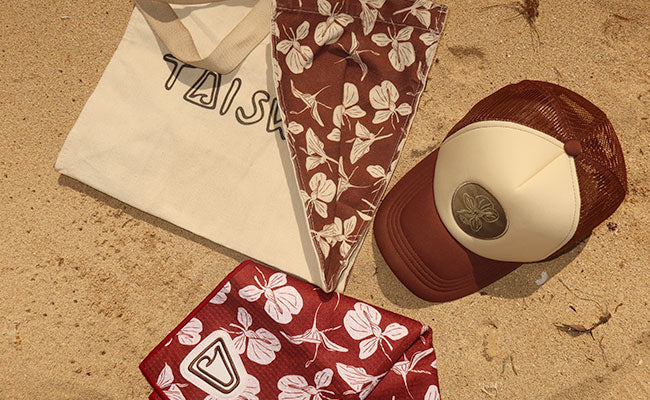

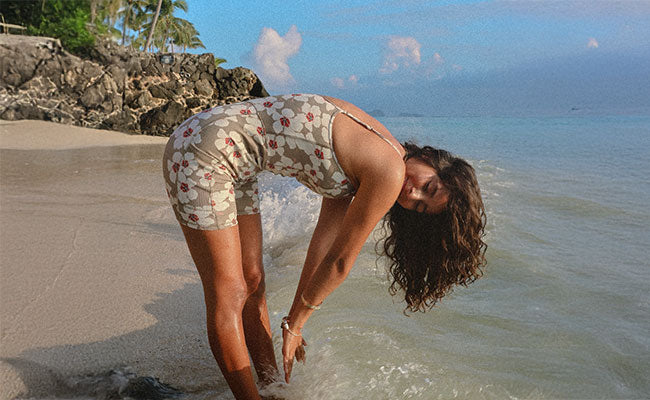
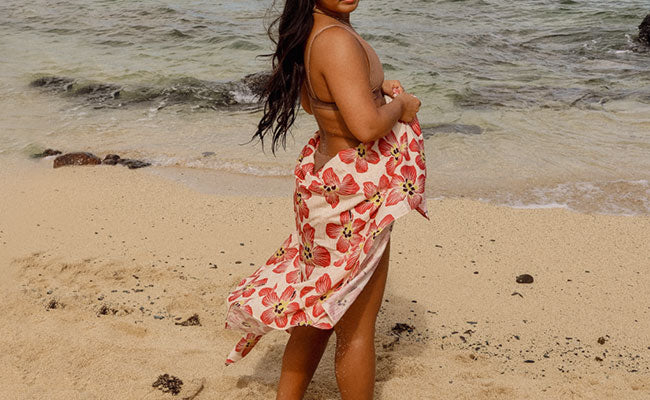
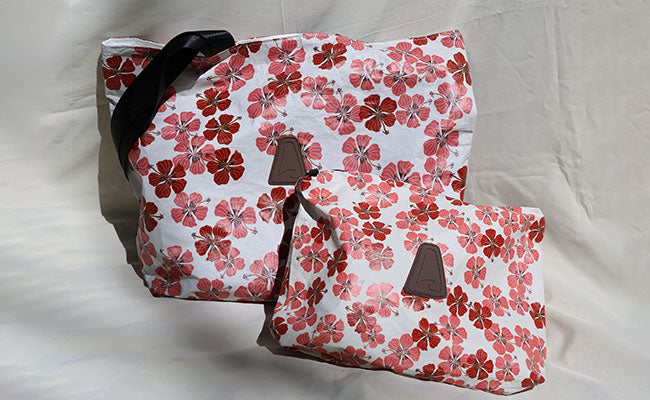
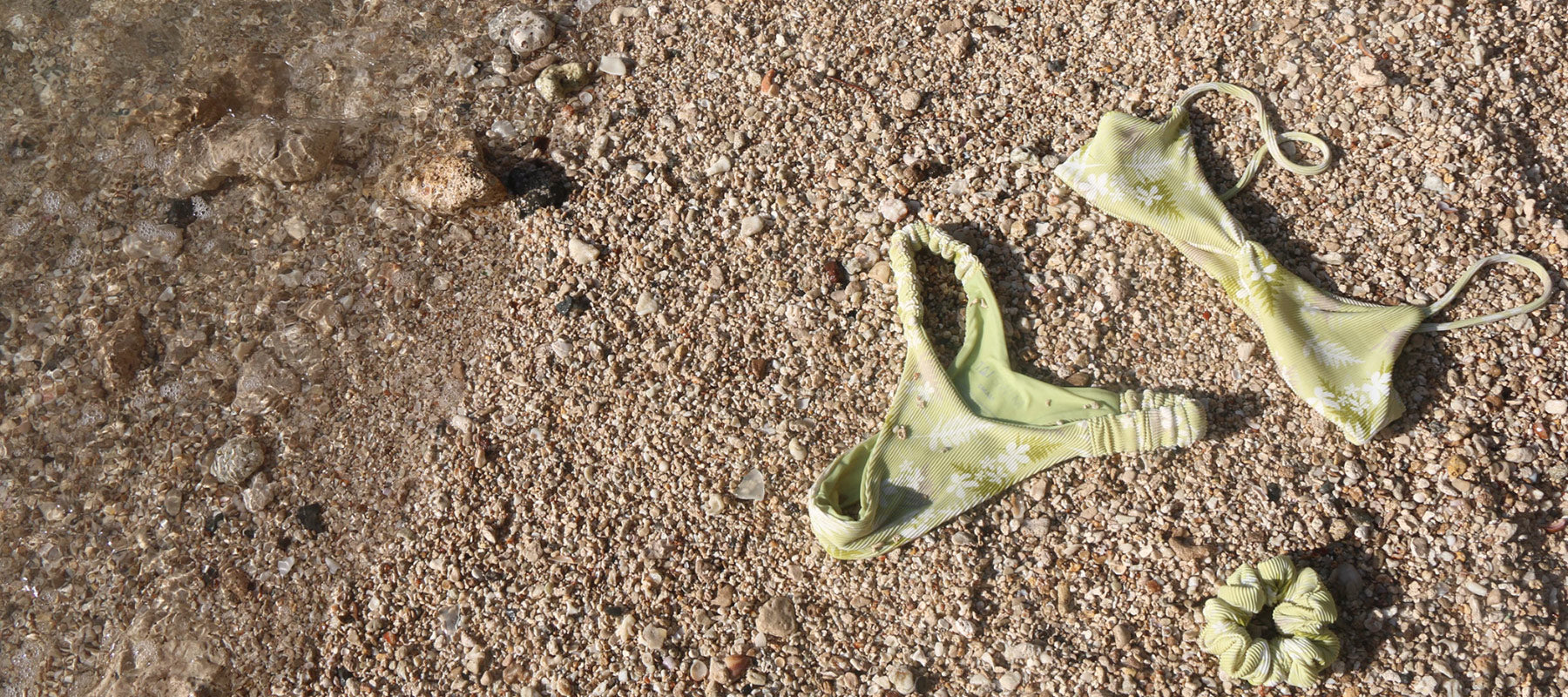
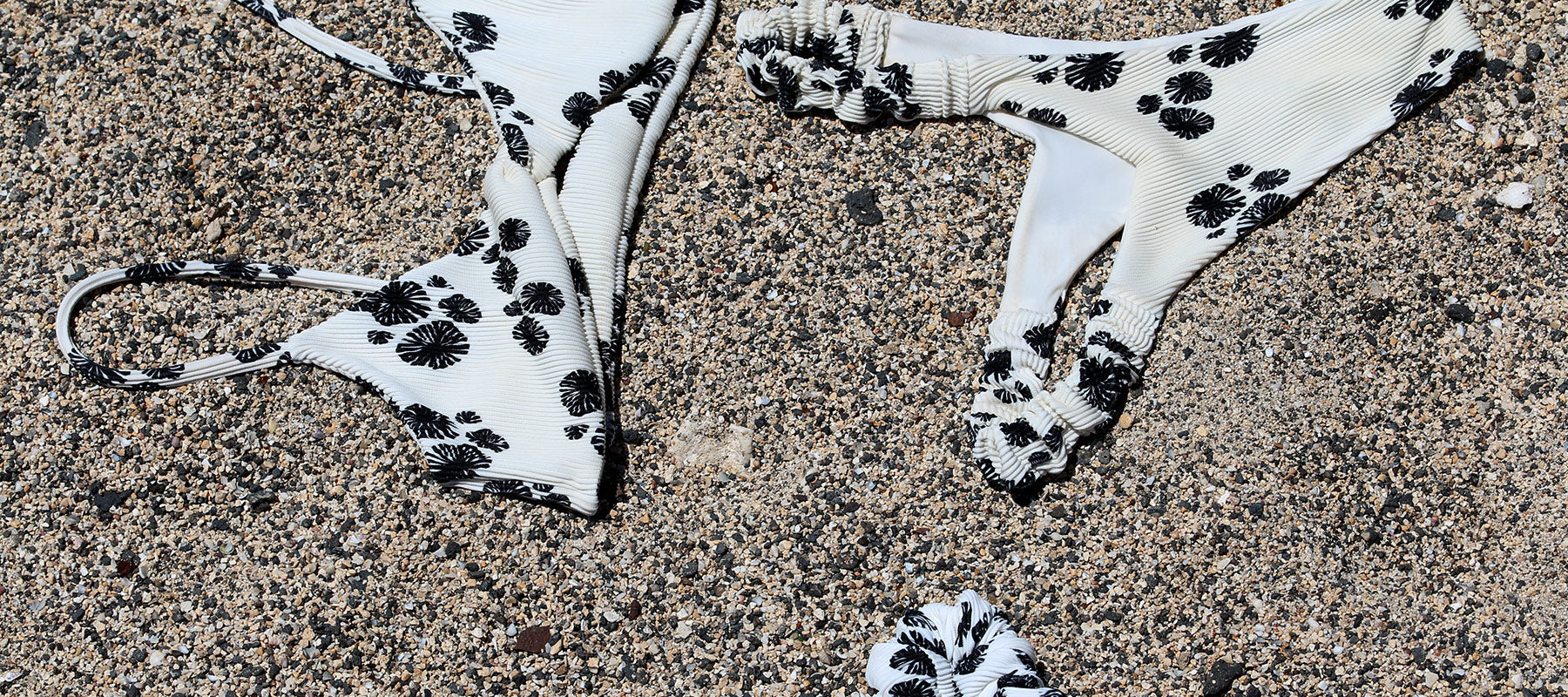
82 comments
Interesting perspective. But let’s not forget Hawaii is currently an official US State and US citizens from anywhere have a right to visit as we please. Now I do not intend to mean that we should do as we please when there. I am a responsible tourist and respect both nature and people whenever I travel with my family. Your unwelcoming attitude along with others locals is quite ridiculous. You do not own the land. No one does. I pay federal taxes that are currently going to be used to rebuild Maui. You’re not going to stop me from visiting whenever I want to and quite frankly I don’t care if you hold up a sign telling me to go home. I’ll laugh at you in the rear view mirror of my mustang convertible.
Don’t get me wrong, I am not a disrespectful person, but if my family is facing disrespect from a local while we are spending our hard earned dollars on our family vacation – I’ll fight back.
You should spend some time learning about the economics of your home island and you’d know that 80% of your economy is either directly or indirectly supported by tourism. Don’t bite the hand that feeds you.
And don’t tell me (a responsible and respectful tourist) where I can and cannot vacation. You just sound stupid. The audacity to list charities for helping Hawaii and at the same time telling us to go home. Get a clue. See you on my next trip and I am praying for the people of Lahaina currently.
J
I and my family went to Hawaii in1999. My parents also went in 1997 and we all enjoyed it very much. Well, if what I just read is true, I have just too much respect and appreciation to ever return. How deplorable and intrusive. I’m very sorry for that, and also for the comments of any rude bloggers.
Aaron Williams
End-stage capitalism and global over population are both core issues here.
Plus many powerful people are simply not that nice.
Drusus
This article makes some very broad assumptions. First, I could say the same thing where I’m from in Southern California. My “sleepy” little beach town in North San Diego was considered a “working class” town before urban sprawl and the influx of people moving South from both the Bay Area as well as LA Counties. Our home prices are currently up over 500% from around 1999-2000. I wish no one would come to where I live but unfortunately population growth coupled with low cost travel has affected us all. Additionally, people want to visit areas of the US that are beautiful (weather, beaches, etc).
This article downplays the importance of tourism dollars into the local economy. Tourism is greater that 20% of Hawaii’s economy and is its largest industry. Without it, roads, schools, jobs would be greatly affected just from the tax revenue alone.
“Tourism is the largest single source of private capital for Hawai’i’s economy. In 2019, Hawai’i’s tourism economy has recorded. ➢ State Tax Revenue: $2.07 billion (1.4%,$28.5 million YOY versus 2018). ➢ Visitor Arrivals: 10,424,995 (+5.4% YOY versus 2018).”
While it may be wishful thinking, tourism is only going to increase and like I experienced in my not-so-small anymore So Cal town, you better learn to make lemonade out of the lemons you are referencing in you are going to be in for a lifetime of disappointment.
Justin
I am appalled at the ignorant comments on this blog post. Before you comment anything, did you even read the article? Native people are asking you not to come? DONT COME. Are you stupid? Colonization isn’t okay now and it never has been. Tourism dollars obviously don’t help native people. It’s not that hard to understand. The comment saying you’re booking a flight to Maui, you’re disgusting. Stay home. They are suffering right now and don’t want or need you.
Kristi
It seems a little short sighted to think tourism isn’t needed for the local economies, even if you aren’t in an industry supported by it. However, being someone who works in the hospitality industry, I understand lots of people are just not respectful in general, and although it’s not the majority, they are the ones who are remembered. I can understand why the locals would feel this way. We will be visiting in a few weeks and tried to be mindful of booking tours with locally owned companies and will try to eat at locally owned places. We will most definitely be respectful of the lands and traditions as we are merely guests in someone else’s home.
Jonathan Matte
It’s sad what they have done to Hawaii, and they are trying to do the SAME THING to Puerto Rico, but don’t get it twisted. At the end of the day, we are Latinos and if we ousted a Governor, trust and believe that we will fight this.
Melissa
That’s okay I’ve been there before several yrs ago & never really cared for it way too humid & people there seemed rude just like the person in this article who doesn’t want us there & says all the other locals don’t want us there but now since your state is being blown away from the wildfires don’t expect the rest of the states then to help you out financially. Your paradise state can help itself out, I’m done with states & countries with a disaster & talks about tourists behind their back saying they don’t want them there then beg us for financial help when they have a disaster well you Hawaiian people can help your ownselves out. I’m done with haters, kidnappers, thieves, murderers & rude, mean belligerent people!!!! And here I was going to send you a big donation for your fire in Maui but guess what honey? I’ve decided not to after reading this nasty awful article. Good luck with all the wildfires going on there I’m sure they’ll be plenty more.
Kenna
This rhetoric of “people should stay away” can be said about any place that has been colonized and locals being priced out. It’s not only a Hawaiian thing. I mean if we’re going to get into colonization then Mexican/Indigenous people shouldn’t be priced out of their homes in California. Telling people to stay away or not live there is just unfair. I truly understand these concerns and wholeheartedly agree disrespectful people & social media are a problem. Maybe instead of getting angry with tourists teach them Hawaii’s beautiful culture and history (even the part where the US stole the land which is always a sad story)
Bgee
Proud Polynesians deserve to be independent if they never rallied to join the USA. Arresting their Queen and handing out land to Dole and all the other morally bankrupt business people who “developed” Hawaii is a wound that never healed in the Hawaiian people! They can immigrate to the USA if they want to and visa requirements SHOULD exist both ways imo. It’s been years of “we can’t stand the USA” so let’s pay rent for the bases and just get the hell outta there.
Marta Solomon
I’ve read many studies done on the environment in Hawaii. I totally believe that tourism is hurting Hawaii. Go somewhere else in vacation. So many beautiful places to visit and explore.
Linda
No worries, you got your wish. No one will be coming to Maui anymore.
Crystal
Don’t come here, but we want your money. That’s about the gist of it. Even more so with Maui on fire. Like another country wouldn’t just take them over if they weren’t part of the US. Aloha my ass.
D
Tourism has it’s costs, and locals everywhere feel the pain of tourism. This is not unique to Hawaii. But local governments can regulate it to mitigate its negative impacts while keeping the profits, which is the bargain. The level of hate towards tourists is however unique to Hawaii. Even more hate towards US citizens who legitimately move to Hawaii to make it better with their specialized skills, or come and pay high property taxes in the coffers of the local government. These are respectful citizens who want to do everything well culture-wise, and are a net positive to Hawaii’s economy, but are met with extreme racism. Add to that that only 20% of residents are native Hawaiians, while 25% are non-native whites, and even more of various Asian ethnicities not native to Hawaii.
Why is that? My explanation is that local government corruption, which is using native Hawaiians as puppets for their own grift. Hawaii is receiving huge amounts of money from the federal government, often for illegal programs that are conditional on race. If you have wondered where systemic racism still exists in USA, here it is. You need to be of Hawaiian race (defined precisely as percentage of blood quantum verifiable by blood line) to benefit from these programs. Native Hawaiians are hooked on these programs, which don’t need tourism to be funded. Local corrupt politicians and organizations are also hooked on these programs. Meanwhile it is true that native Hawaiians probably do not have to gain much from tourism. But corrupt local politicians do gain a lot from tourism, so it is here to stay.
This will not improve as long as race is codified in local programs and funding everywhere. In fact, things are getting more extreme, not less so. Hawaii is on a collision course with the US Constitution, which sooner or later will abolish these illegal programs. God bless us when that comes, as it would not be pretty
Eric
I am so much better informed now about the islands from this article. It has always saddened me the disrespect of vacationers and tourists. And it happens everywhere. I used to love to go to Sedona AZ. Just a few hours drive for me. But it has been trashed beyond belief especially during covid. People need to remember when they visit somewhere that place is someone’s home. No wonder that Hawaiians don’t want us there. Nobody has any respect or manners any more just entitlement. I’m old now but always wanted to go to the islands. I won’t go though. But I do purchase hand crafted items from artisans there and I hope that is o.k. prayers for change.
Rebecca Hebert
I’m from the UK and have always wanted to visit Hawaii; I’m glad I know all this now and won’t visit.
Shahmin
The local government welcomes tourist to hawaii they say it’s to build up the economy, lots of foreigners are selling item that came from foreign countries and the money goes back to that country to bring in more merchandise to sell, example, at the flee market or ABC stores items are purchased most with Hawaiian logo on them like “ALOHA, HAWAII “ from beach towels to hats to clothing etc. all made in a foreign country such as china using Hawaiian culture to make the sale and are purchased with cash so the tax are not recorded, how is it building up the economy, and more visitors brings up prices making it harder for the locals to survive, tourists will come spend and leave locals live there and everyday has to deal with the high cost of living from food to gas to rent to automobile registration, etc. , the greedy local politicians has no problem with that, making a good income themselves not thinking of the people that are struggling and has to work 2 to 3 jobs to get by and not enjoying their families or can’t take a vacation, And tourism causes quicker breakdowns of the infrastructure so government raises local taxes to pay for the repairs,
Getting back to the topic, that’s couple reasons why locals don’t want tourists visiting hawaii.
GAG
Gordon A. G
Replying to Jane Doe comment on July 20, 2023 at 4:22 pm and other rude comments:
Hapa kid here. I’m half Hawaiian for those of you who don’t know what that means. My mom works as a flight attendant and has to see visitors every single day. She said recently alot of people are moving here for their “mental health” and they end up leaving a few years later. She remembers them when they come back on the plane. Please don’t move to Hawai’i. Also don’t visit. How hard is it just to listen to the native people of a place who don’t want you here. How many times do we need to make videos asking you not to come. We shouldn’t have to say anything else. Any of the old people commenting on this like “I used to visit in the 1980’s” I’m sure you were glad iphones werent around to cancel you. Colonization has never been okay. Now we can just record it while its happening in real time so these qualms aren’t an out-dated complaint. They’re happening in the modern day and we can stop it hopefully before it happens.
I have alot of friends in high school who are military or who moved here and didn’t have a choice and most of them are kind or they want to learn about my culture and they know that as long as they are willing to learn or respectful, us hawaiians don’t have any resentment toward them. Some of my other hawaiian friends are less educated than the ones that moved here, like they don’t know what the kumulipo is or something. I like this blog post and agree with everything said. If you are offended by anything said here, you are probbaly one of the people the author is talking about when he says you go viral for getting too close to the seals or stepping on heiau. I remember both of those videos. Please just don’t come to hawaii. Or a bunch of hawaiians will be waiting for you on the beach to tell you to f**k off and go home.
Nicky
Thank you for this insightful, frank explanation. I am heartbroken to hear of such disrespect to your home and angered by the rude comments left here. I visited Maui and O’ahu on my honeymoon but wish I’d known then what I know now. I would have made a different choice. We only experienced kindness from locals and enjoyed the time we had with them learning about their culture and heritage. But if I had it all to do over again, especially knowing that there is little to no financial benefit to native Hawaiians, we would never have come. Please forgive our ignorance and continue to teach others. I truly believe education is the door to peaceful change.
Heather
I’m from Nantucket Island and us natives hate tourists also. Their big money and elitism has ruined the place. I know exactly how the Hawaiian people feel, but like Nantucket for Hawaii its too late. Greed and unchecked capitalism has done its damage and be glad you once saw the best of it.
Richard Mack
We are not all disrespectful or feel entitled
Some of us just want to be in touch with with the beauty of the island and to be a part of the patterns
Mary
I’m visiting Kauai with my family of 4 and have tried to be very cognizant of the fact that we are tourists here. Anywhere I go, whether it’s Hawaii or the national parks, I see ignorant Americans who have no respect or understanding of the places they are visiting. And it doesn’t take very many peope like that to ruin it for everyone. During our trip, we volunteered at the Kauai Humane Society, Hape Puna’s farm and picked up trash with Kauai’s local Surfrider chapter. There are so many things visitors can do to give back while they are here and it’s a win win because while you’re helping out, you get to know the people who live here and their traditions and the culture. Unfortunately, so much in this world is fueled by greed and that’s the same with tourism. I’ve always thought Hawaii should charge much higher tourist taxes and use that money to help local communities and maybe provide better wages. And it might lower the number of tourists if travelling became too expensive. But I guess in the end, it’s all about educating people about how to be a responsible and caring tourist. Somebody needs to create a Kokua t-shirt brand that promotes Kokua and the Aloha spirit. I’ve looked for t-shirts with Kokua written on them and have not found anything. For those that don’t know, Kokua embodies that Hawaiin spirit of giving without expecting anything in return. I feel like so many tourists are doing just the opposite. I encourage any tourists reading this to find ways to give back to Hawaii during their vacation. I can ensure you that you and your family will probably end up receiving back more than you gave. Me and my two daughters thoroughly enjoyed the time we spent volunteering.
Steve
Thank you for writing this article and explaining the reasons. I have recently begun to hear about this and wanted to find out more about it and your article was the perfect way to do so. I really appreciate all the information you put into it.
Even though it is, sadly, not surprising, it is always disheartening to hear about any disrespect of people, wildlife, or the environment. Many Americans are blinded by a belief they have the right to do whatever they like because they are American. They cannot grasp the concept their rights are not more important than someone else’s; they are spoiled children who throw temper tantrums if even a hint of “don’t do that” is in the air.
Our history classes act as if colonization was our right – it was not, and had a positive impact – it did not. While we cannot change what happened then, we can enlighten ourselves now and try our best to do things to respect the cultures that were here before us. The first way to do that is to listen to them and do ask they ask. If that means I never visit Hawai’i, so be it. I wish the Place and People well. It is a drop in the ocean toward making up for the harm my ancestors caused.
Max
No problem. No one likes a bunch of fat greasy Hawaiians anyway
No Problem
It’s a shame, I really do want to visit sometime to take in the beautiful sights. I can understand though why those that are native would not want mainlanders there. Of course I also don’t have that kind of money so there is that. I’m sorry for some of the disrespectful comments. People acting extremely entitled and like the Natives should be thankful for the tourism. It’s the main reason we get told we aren’t wanted there. Maybe one day my wife and I will visit when it’s appropriate, along with a lot of research to avoid any mishaps or disrespect to the land or culture.
Todd
Replying to Avo Tomji comment:
You sound like a major haole claiming that “back in the day” people were more accepting. Just because you got away with moving to a place where you don’t belong back then doesn’t mean its okay now. It’s the colonizer mentality that thinks “Hawaiians are welcoming” and “where’s the aloha”. I am nine generations native hawaiian with my ancestors directly linked to ali’i here and you couldn’t begin to understand the history here if it bit you in the ass. The writer of this blog post is of hawaiian decent so they have a right to have an opinion about the group of people who have displaced our families for hundreds of years. maybe do some research first before running your mouth. sounds like your time is up on maui too. time to go home braddah!
Kyle
Avo Tomji
I’ve never planned on going to Hawaii (I’m not even old or rich enough LOL) but reading this was heartbreaking. The blatant disrespect from tourists is awful. I can understand why they don’t want visitors. Some of the comments here displays that perfectly. They don’t owe YOU anything. They asked you not to come and you came anyways. You got exactly what you asked for, don’t act like you’re a victim.
Micah
Thank you for sharing your thoughts on this. As a non-native from the continental US, I’m taking it to heart.
Reading the blatant disrespect from the other commenters to your heartfelt article only underscores your concerns. Native Hawaiians don’t owe me any sort of welcome. I’ll enjoy the islands from afar using the magic of the Internet and nature documentaries instead.
M.S.
I was certainly surprised during my stay in Kauai at how unwelcome we felt. It is quite obvious that most don’t like visitors. I will never come back for that very reason. Natives ought to look in bringing back agriculture exports as a means of support because tourism isn’t their thing and they take no pride in welcoming travelers.
Cynthia Serum
Replying to Alex Rodriguez Comment
🙄
Mihai
Just came back from working in Hawaii. Basically we hosted a multi-million dollar automotive press event, which brought a massive chunk of cash flow to the Big Island to say the least. We’re all about local business, so this wasn’t some commercial cash-grab….it all went to the little guys. After 2 weeks I flew my wife in just to kick back and have some vacation time for another week. Im not gonna get too deep here, but I can honestly say, Hawaiians are not “welcoming” at all! We felt unwanted the entire time we were there, and it was extremely disappointing.
Being from Miami, and having visited many Caribbean islands, you definitely don’t get the island hospitality here. Just a “hurry up and get the fuck outta here” attitude. I will never go back, and I’m sure they are fine with that, but they seem to forget that even tho many Hawaiians avoid touristy jobs, the entire state depends on tourist dollars. I think maybe they need a little reminder of that, and maybe a short “embargo” would put them back on track to understanding that concept.
Aloha/Mahalo? Doesn’t mean shit anymore….they don’t give a crap about you, your family, your business, or your presence! They even have derogatory terms like “HOWLEY”…..that they shout at mainlanders out in the open. Hawaii, and Hawaiians in general, can suck a boner!
Alex Rodriguez
Leave a comment
This site is protected by hCaptcha and the hCaptcha Privacy Policy and Terms of Service apply.